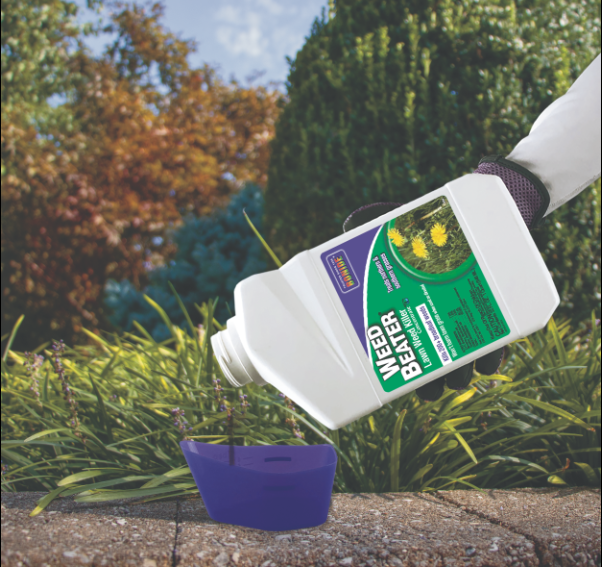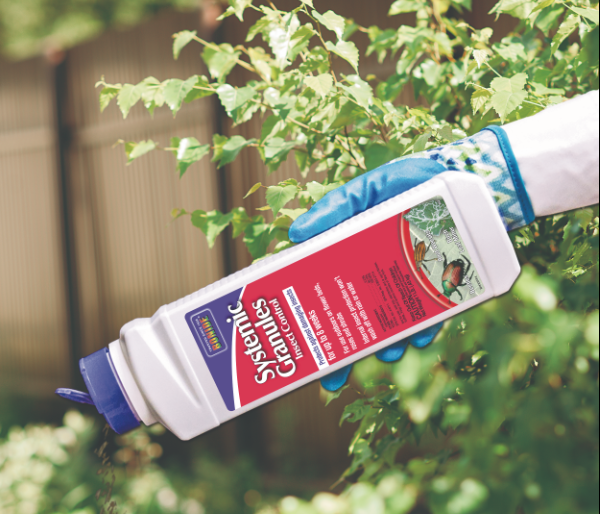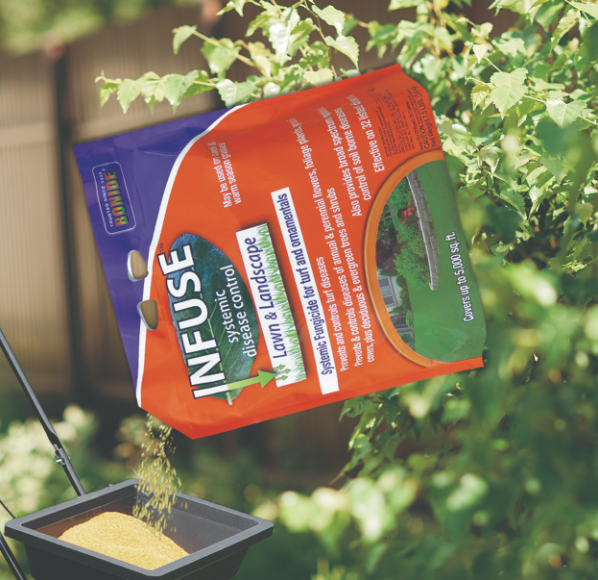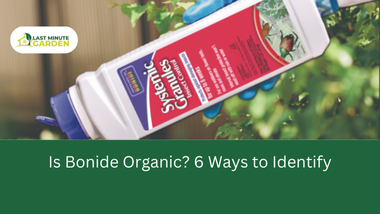Is Bonide organic? The popularity of organic gardening is on the rise, with many turning to products labeled as “natural” in hopes of avoiding synthetic chemicals.
However, not every product that claims to be natural meets strict organic standards. This can leave many consumers wondering if they’re truly making the right choices for their plants and the environment.
Bonide, a well-known brand for garden products, has built a reputation around quality solutions for plant care, pest control, and lawn maintenance.
Yet, even with Bonide’s popularity, there’s often uncertainty around whether its products meet organic standards. Some gardeners may assume all Bonide products are organic, while others may be unaware that the brand offers both synthetic and organic options.
This article dives into what it truly means for a product to be organic in gardening and lays out 6 ways to verify if Bonide’s products meet these criteria.
What Does Organic Mean in Gardening?

When we hear the term organic in gardening, we often picture a product that’s free from synthetic chemicals, pesticides, and artificial additives. But the term carries specific standards that go beyond just being natural.
Organic products are those that meet particular requirements set by certification organizations, such as the USDA and Organic Materials Review Institute (OMRI).
These bodies ensure that a product follows strict guidelines, including the use of ingredients derived from nature and the exclusion of synthetic chemicals and additives.
In order to meet these standards, the ingredients must originate from natural sources, with no chemical preservatives or synthetic pesticides added. This often applies to fertilizers, soil treatments, and pest control solutions, where the demand for genuinely organic options is high.
Overview of Bonide’s Product Line

Bonide has been a trusted name in garden care for years, offering different types of products designed for pest control, soil enhancement, and disease management. It is important to note that its product line includes both organic and synthetic options.
This mix can sometimes lead to confusion, as some gardeners may assume that all Bonide products meet organic standards.
Some of the products are crafted with natural ingredients and carry certifications that indicate they are safe for organic use, while others use synthetic chemicals to target specific pests or diseases more aggressively.
For example, certain insecticides from Bonide are developed with synthetic compounds to provide fast-acting results, which may appeal to gardeners dealing with challenging infestations. However, these products do not qualify as organic due to the presence of non-natural ingredients.
6 Ways to Identify If Bonide is Organic
1. Look for Organic Certifications
Check for any official organic certifications on the product label, such as the USDA Organic seal or the OMRI (Organic Materials Review Institute) listing.
These certifications mean the product has undergone a thorough evaluation and meets organic standards. If a Bonide product carries one of these seals, you can be confident it adheres to strict organic requirements.
2. Examine the Ingredient List
Ingredients speak volumes, and Understanding the active ingredients in Bonide products can help assess their organic status. Look for natural components like pyrethrin, or diatomaceous earth, which indicate an organic product.
For instance, neem oil, derived from the neem tree, is a common ingredient in Bonide’s organic pest control solutions. By carefully reading the ingredient list, you can identify any synthetic additives that might disqualify the product from being truly organic.
3. Consult Product Descriptions
Bonide provides detailed descriptions of their products on their website or on their package. These descriptions often include whether a product is formulated for organic use or not.
For instance, Bonide often includes terms like “natural” or “organic” for products that meet organic standards. Take a moment to review these descriptions, as they can clarify if a product is in line with your organic values.
4. Consult Bonide’s Organic Product List
Many brands list their certified organic products on their websites or offer guidance through customer service. Checking Bonide’s website or contacting their support team can help clarify which products are certified organic, providing added transparency.
5. Seek Expert Opinions
Consult local agricultural extension services or horticultural experts who can provide guidance on the specific Bonide products you’re interested in. They can help clarify which products are suitable for organic gardening based on current regulations and best practices.
You can effectively determine whether Bonide products meet your organic gardening needs and ensure that your gardening practices remain environmentally friendly and sustainable.
6. Refer to Reliable Organic Gardening Communities
Gardening communities often discuss specific brands, and Bonide is no exception. Platforms like Garden.org, Houzz, and Reddit’s Organic Gardening forum feature product reviews from experienced gardeners.
These reviews highlight firsthand experiences with Bonide, providing insights into whether a product works effectively in organic gardens.
Additionally, if other gardeners have found that a Bonide product didn’t meet their organic standards, they often provide alternative recommendations, saving you from trial and error.
Examples of Bonide’s Products
1. Insect Control
Bonide provides various insect control solutions that cater to different types of pests. Some popular products include:
- Captain Jack’s Deadbug Brew: This product contains spinosad, effective against chewing insects like caterpillars and beetles.
- Bonide Neem Oil: A versatile option that controls a wide range of pests and diseases, derived from the neem tree.
- Insecticidal Super Soap: Targets soft-bodied insects like aphids and spider mites, providing a safer alternative for organic gardening.
2. Disease Control
Bonide’s disease control products help manage fungal and bacterial issues in plants. Notable offerings include:
- Revitalize Biofungicide: Utilizes Bacillus amyloliquefaciens to suppress fungal and bacterial diseases while promoting plant health.
- Infuse Systemic Disease Control: A systemic treatment that protects plants from diseases like blight and root rot.
3. Weed Control
For weed management, Bonide offers several effective formulations:
- Weed Beater: Designed for broadleaf weed control in lawns without harming grass.
- BurnOut: An organic herbicide that uses natural ingredients to eliminate weeds quickly.
4. Fungicides
Bonide’s fungicides are formulated to combat various plant diseases:
- Liquid Copper Fungicide: Effective against fungal diseases such as powdery mildew and blight.
- Fung-onil: A broad-spectrum fungicide that protects against multiple types of fungal infections.
Final Thought

Determining if a product is truly organic takes a bit of extra effort, but it’s worth it for those committed to maintaining a natural and organic garden. Bonide offers a variety of gardening solutions, but not all of them meet strict organic standards.
Look for recognized certifications, carefully examine ingredient lists, understand the product’s intended use, verify the company’s claims, and read reviews. This can help you make decisions about which Bonide products align with organic principles.
As you prepare for your next gardening project, keep these tips in mind to ensure your choices reflect the organic standards you care about.





